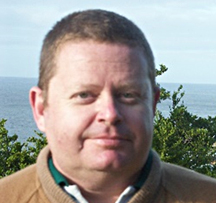Food Systems Podcast 22
In discussion with David Cleary Podcast summary
Thursday, May 06, 2021
Trade deals can do more on deforestation and sustainability
Trade negotiations, including in Europe, have much more potential to deliver on ensuring all commodities are sustainably produced. So what needs to change? We asked David Cleary, Director for Agriculture at The Nature Conservancy. Get a taster of his ideas in the 3-minute summary below of our latest Food Systems Podcast.
Have partnerships for sustainability in global trade evolved and are results better?
Partnerships are more structured, more focused on the entire supply chain. Also working with the financial sector looking at the whole question of financial incentives.
On results, no. Tropical deforestation is fairly stable – but at a level higher than we’d like. Some places have improved, other places have got worse.
Is the situation improving with Environmental, Social and Governance (ESG) and sustainable investing – or is that greenwashing?
There is a lot of capital out there which is prepared to take a longer-term impact investing perspective. Companies’ commitments are genuinely meant. But in most companies, there hasn’t been enough political will at the headquarters level to drive through.
If industrial agriculture – soy, palm oil, other big export cash crops – is driving deforestation, is it right the EU continues with such exports?
Those are important industries and support a lot of small farmers. We don’t want to choke off EU demand. But we do want to send a signal that says they need to meet certain conditions that are consistent with our values and our environmental concerns.
You can do that in different ways, like certification. But you’ve got other commodities where certification won’t work. So in an international trade agreement, you insist on legality, and verified legality.
That’s an important theme in current trade discussions between the EU, Mercosur and other trading blocs. Important because the monitoring, control and verification systems you set up to establish legality can also serve for more rigorous monitoring and verification systems that meet the zero-deforestation demand that the average European consumer has.
Talking about financial incentives – who pays?
The money has to come from everyone. There are trillions of dollars flowing through supply chains. We need to shave off a relatively small proportion of that and return it to producers.
Everyone, including governments, needs to recognize that resolving the deforestation question will take care of one sixth of world’s greenhouse gas emissions. So it has to be part of any proper integrated approach to climate change moving forward.
In the EU-Mercosur agreement, is the environment still second to cars and beef?
Yes. The European Commission’s trade negotiation structure hasn’t mainstreamed sustainability concerns to the extent that governments and the voting and consuming populations in the EU have. And that’s a major problem.
It’s critical for all commodities that countries can’t import anything into the EU unless they’ve got a convincing, robust verification system so that we know that what’s coming in has been produced legally.
Can you give us one idea or policy that would change things to make the system more sustainable?
The single most important thing to get deforestation down is a habitat credit, a credit for farmers to preserve the vegetation on their land and transition to zero-deforestation production.
The existing inducements to farmers are all really complicated. So we have to have a completely new system.
If you have found this short summary interesting, there’s lots more to hear in the full 25-minute conversation. It is available now on iTunes, Podbean or Spotify or on this website.

David Cleary
Doctorate in anthropology from Oxford University in 1988, on the social organization of informal sector mining camps in the...see more
